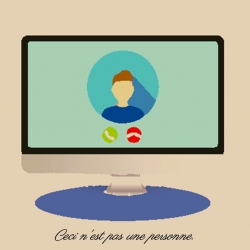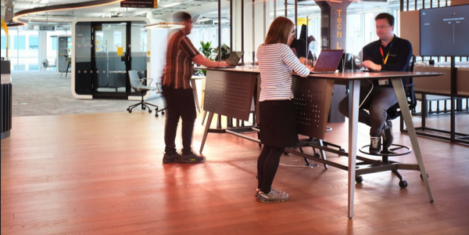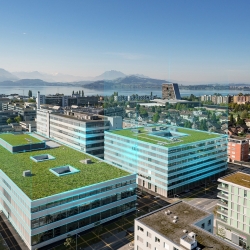To provide the best experiences, we use technologies like cookies to store and/or access device information. Consenting to these technologies will allow us to process data such as browsing behaviour or unique IDs on this site. Not consenting or withdrawing consent, may adversely affect certain features and functions.
The technical storage or access is strictly necessary for the legitimate purpose of enabling the use of a specific service explicitly requested by the subscriber or user, or for the sole purpose of carrying out the transmission of a communication over an electronic communications network.
The technical storage or access is necessary for the legitimate purpose of storing preferences that are not requested by the subscriber or user.
The technical storage or access that is used exclusively for statistical purposes.
The technical storage or access that is used exclusively for anonymous statistical purposes. Without a subpoena, voluntary compliance on the part of your Internet Service Provider, or additional records from a third party, information stored or retrieved for this purpose alone cannot usually be used to identify you.
The technical storage or access is required to create user profiles to send advertising, or to track the user on a website or across several websites for similar marketing purposes.
 Interest in the four day work week is rising yet millions of UK workers are set to miss out, according to research from ClickUp. It found that certain careers are more likely to miss out on the idea of working a day less each week for no reduction in pay, as other employment sectors may go ahead. Businesses must take action to close these gaps to create equity for workers in the UK, the report argues. (more…)
Interest in the four day work week is rising yet millions of UK workers are set to miss out, according to research from ClickUp. It found that certain careers are more likely to miss out on the idea of working a day less each week for no reduction in pay, as other employment sectors may go ahead. Businesses must take action to close these gaps to create equity for workers in the UK, the report argues. (more…)
















 The first Omnirama event on the 23rd of March launched the series exploring different factors challenging the world of work in a time of prevailing uncertainty. Underlying Ominirama’s raison d’etre is that recent events have turned the status quo on its head with some major structural and systemic changes taking place. Nobody seems to have any clear idea of how to deal with this enormous transformation in the ways we work All the playbooks and all the guidance that we have all relied upon for so many years have now gone out the window.
The first Omnirama event on the 23rd of March launched the series exploring different factors challenging the world of work in a time of prevailing uncertainty. Underlying Ominirama’s raison d’etre is that recent events have turned the status quo on its head with some major structural and systemic changes taking place. Nobody seems to have any clear idea of how to deal with this enormous transformation in the ways we work All the playbooks and all the guidance that we have all relied upon for so many years have now gone out the window. 













June 29, 2022
The perfect storm shouldn’t force us to jump aboard the wrong ship
by Mark Eltringham • Comment, Flexible working, Technology, Workplace design
(more…)